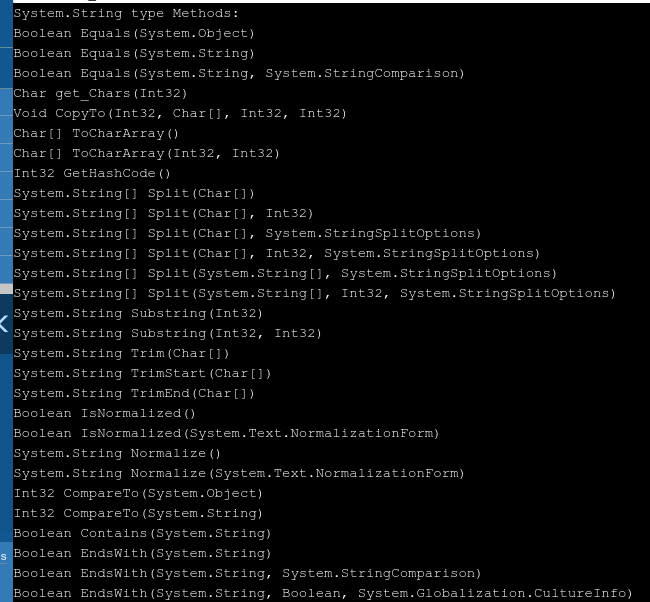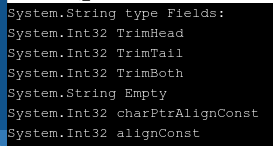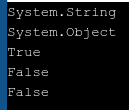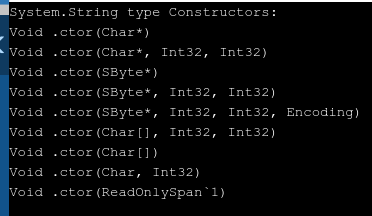C# Reflection
A process to get metadata of a type at runtime is called reflection in C#. The required classes for reflection are found in the System.Reflection namespace. Some of these classes are:
- Type
- MemberInfo
- ConstructorInfo
- MethodInfo
- FieldInfo
- PropertyInfo
- TypeInfo
- EventInfo
- Module
- Assembly
- AssemblyName
- Pointer etc.
The classes to emit metadata are found in the System.Reflection.Emit namespace.
C# Type class:
The type declarations for class types, interface types, enumeration types, array types, value types etc. is defined by the C# Type class. Being found in the System namespace, the C# Type class inherits the System.Reflection.MemberInfo class.
C# Type Properties:
The important properties of Type class are listed below:
| Property | Uses |
| Assembly | To return the Assembly for this type. |
| AssemblyQualifiedName | To return the Assembly qualified name for this type. |
| Attributes | To return the Attributes associated with the type. |
| BaseType | To return the base or parent type. |
| FullName | To return the fully qualified name of the type. |
| IsAbstract | To determine if the type is Abstract. |
| IsArray | To determine if the type is Array. |
| IsClass | To determine if the type is Class. |
| IsEnum | To determine if the type is Enum. |
| IsInterface | To determine if the type is Interface. |
| IsNested | To determine if the type is Nested. |
| IsPrimitive | To determine if the type is Primitive. |
| IsPointer | To determine if the type is Pointer. |
| IsNotPublic | To determine if the type is not Public. |
| IsPublic | To determine if the type is Public. |
| IsSealed | To determine if the type is Sealed. |
| IsSerializable | To determine if the type is Serializable. |
| MemberType | To determine if the type is Member type of Nested type. |
| Module | To return the module of the type. |
| Name | To return the name of the type. |
| Namespace | To return the namespace of the type. |
C# Type Methods:
The important methods of Type class are listed below:
| Method | Uses |
| GetConstructors() | To get all the public constructors for the Type. |
| GetConstructors(BindingFlags) | To get all the constructors for the Type with specified BindingFlags. |
| GetFields() | To get all the public fields for the Type. |
| GetFields(BindingFlags) | To get all the public constructors for the Type with specified BindingFlags. |
| GetMembers() | To get all the public members for the Type. |
| GetMembers(BindingFlags) | To get all the members for the Type with specified BindingFlags. |
| GetMethods() | To get all the public methods for the Type. |
| GetMethods(BindingFlags) | To get all the methods for the Type with specified BindingFlags. |
| GetProperties() | To get all the public properties for the Type. |
| GetProperties(BindingFlags) | To get all the properties for the Type with specified BindingFlags. |
| GetType() | To get the current Type. |
| GetType(String) | To get the Type for the given name. |
Example:
using System; public class Example { public static void Main() { int num = 100; Type x = num.GetType(); Console.WriteLine(x); } } |
Output:
![]()
Explanation:
In the above example, we are displaying the use and behavior of the Get Type method of the Type class.
Example:
using System; using System.Reflection; public class Example { public static void Main() { Type x = typeof(System.String); Console.WriteLine(x.Assembly); } } |
Output:
![]()
Explanation:
In the above example, we are displaying the use and behavior of the Get Assembly method of the Type class.
Example:
using System; using System.Reflection; public class Example { public static void Main() { Type x = typeof(System.String); Console.WriteLine(x.FullName); Console.WriteLine(x.BaseType); Console.WriteLine(x.IsClass); Console.WriteLine(x.IsEnum); Console.WriteLine(x.IsInterface); } } |
Output:
Explanation:
In the above example, we are using the different properties of the Type class to print the type information.
Example:
using System; using System.Reflection; public class Example { public static void Main() { Type x = typeof(System.String); Console.WriteLine("{0} type Constructors:", x); ConstructorInfo[] info = x.GetConstructors(BindingFlags.Public | BindingFlags.Instance); foreach (ConstructorInfo i in info) { Console.WriteLine(i); } } } |
Output:
Explanation:
In the above example, we are using the GetConstructors(BindingFlags) method to get all the constructors for the Type with specified BindingFlags.
Example:
using System; using System.Reflection; public class Example { public static void Main() { Type x = typeof(System.String); Console.WriteLine("{0} type Methods:", x); MethodInfo[] info = x.GetMethods(BindingFlags.Public | BindingFlags.Instance); foreach (MethodInfo i in info) { Console.WriteLine(i); } } } |
Output:

Explanation:
In the above example, we are using the GetMethods(BindingFlags) method to get all the methods for the Type with specified BindingFlags.
Example:
using System; using System.Reflection; public class Example { public static void Main() { Type x = typeof(System.String); Console.WriteLine("{0} type Fields:", x); FieldInfo[] info = x.GetFields(BindingFlags.Public | BindingFlags.Static | BindingFlags.NonPublic); foreach (FieldInfo i in info) { Console.WriteLine(i); } } } |
Output:

Explanation:
In the above example, we are using the GetFields(BindingFlags) method to get all the public constructors for the Type with specified BindingFlags.

